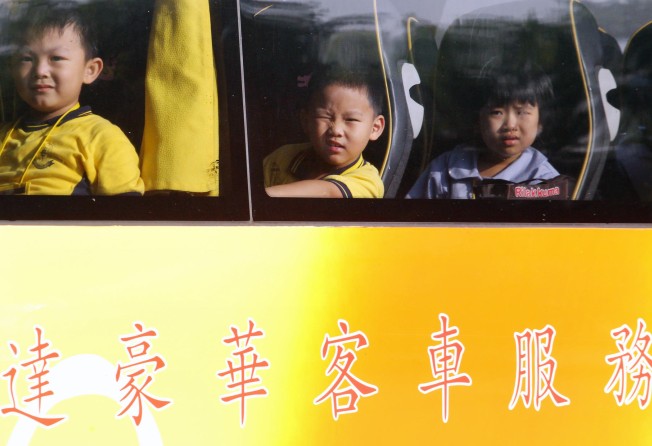Reflections: more schools over border would ease demand for places in HK

The queues of mainland families waiting for application forms at local kindergartens grow longer by the year. At the schools closest to the border, parents with older children born in Hong Kong do not hesitate to compete for primary school places in the city.
The surging demand from mainland parents eager for their children to have a Hong Kong education has caught the schools and the Education Bureau unprepared. That demand has also put pressure on facilities in North district, close to Shenzhen, drawing complaints from parents about the dwindling supply of available school places.
There was a breakthrough late last month when the bureau announced more places would be provided for pupils who commute across the border.
Some 3,000 Primary One places at 122 schools will be reserved for mainland children living closest to Hong Kong. Up to 70 schools in Tuen Mun and Yuen Long will offer 2,350 of these first-year places through the allocation system. Schools in other districts, including Tai Po, Tung Chung and Wong Tai Sin, will also allocate more places for cross-border pupils.
Undersecretary for Education Kevin Yeung Yun-hung says the new arrangements are intended to ease the pressure on popular schools in North district, such as Sheung Shui.
Will it work? Will mainland parents choose schools farther from the border?
There are thought to be 16,000 pupils - 3,000 more than there were in 2012 - who cross the border to attend school here. Their number could rise as the free, less political and bilingual education system here has a greater appeal for parents than arrangements on the mainland.
Parents are increasingly aware of their legal right to an education if their children were born here. Under no obligation to travel long distances to exercise that right, they might continue to apply to schools nearest the border.
It may be that Hong Kong parents in Sheung Shui or Fanling have to accept school places further away from home. There will be many disappointed parents when the central allocation results are released later this year.
It is better in the children's interest to attend a school close to home. With shorter commutes, they will have sufficient energy to listen to their teachers, interact with classmates, and remain active after school.
Forcing children to endure a long journey to school is unfortunate. Decades ago, the mainland students at my secondary school were boarders. Commuting across the border was unheard of.
Transport links are much improved today, but it is not uncommon for some cross-border pupils to wake up at 5am, dress and gulp down their breakfast before making a two-hour bus trip to Hong Kong. At the border, they must queue to get through immigration. At times, students arrive late because of heavy traffic.
Another long journey home is all that these children can look forward to at the end of the day. The gruelling pattern is repeated five times a week, for months, if not years. Small children are unlikely to rebel against this sort of routine, as they are unlikely to know any alternative. Education officials and parents, though, should give some thought to overhauling the system.
Creating more school places in Hong Kong is an expedient move. A better alternative would be for the government to provide incentives for local bodies to set up schools on the mainland that are dedicated to educating pupils who might otherwise cross the border each day.
These institutions might also serve the children of Hongkongers working on the mainland, sparing them the expensive fees of an international school. There is an army of retired teachers passionate enough about education who might gladly take up teaching posts there.